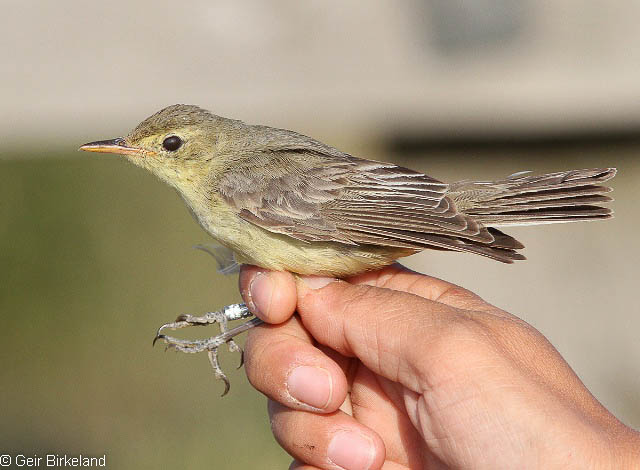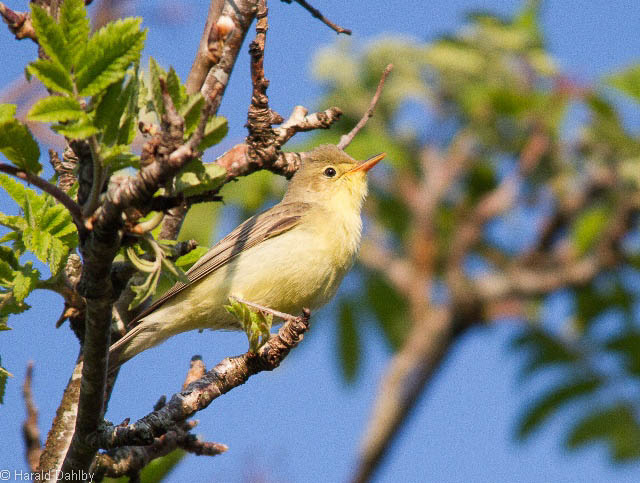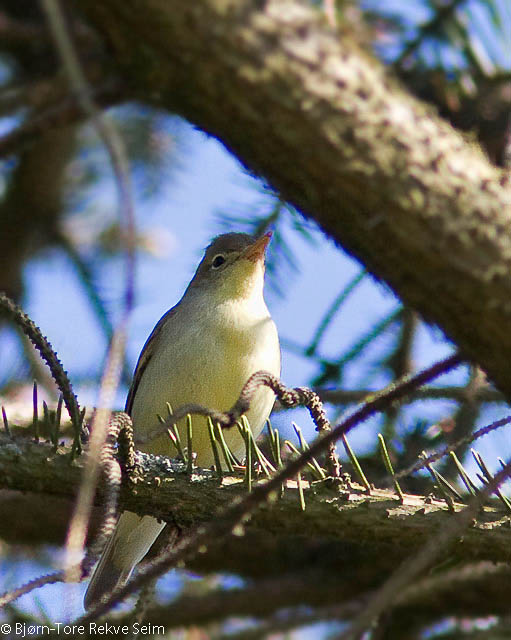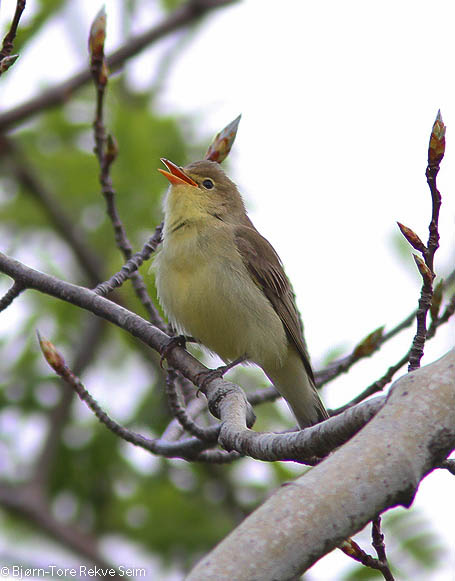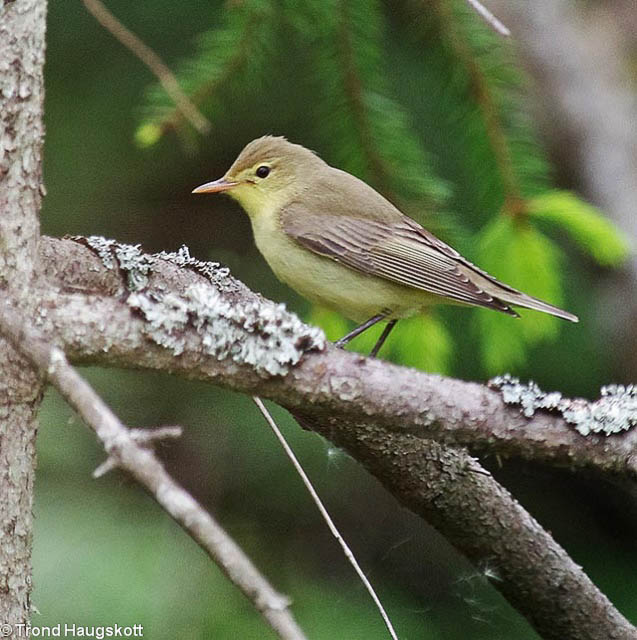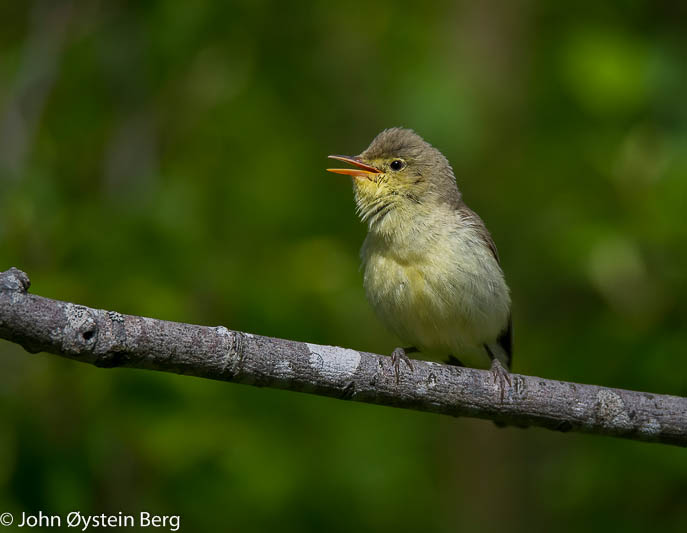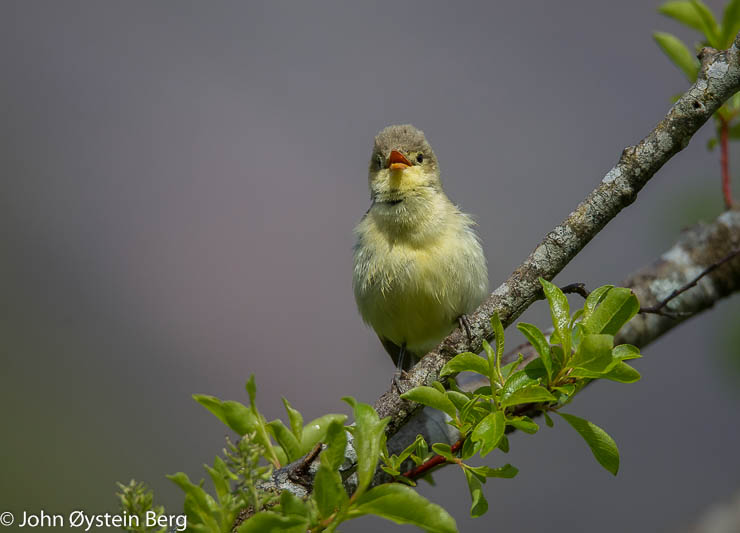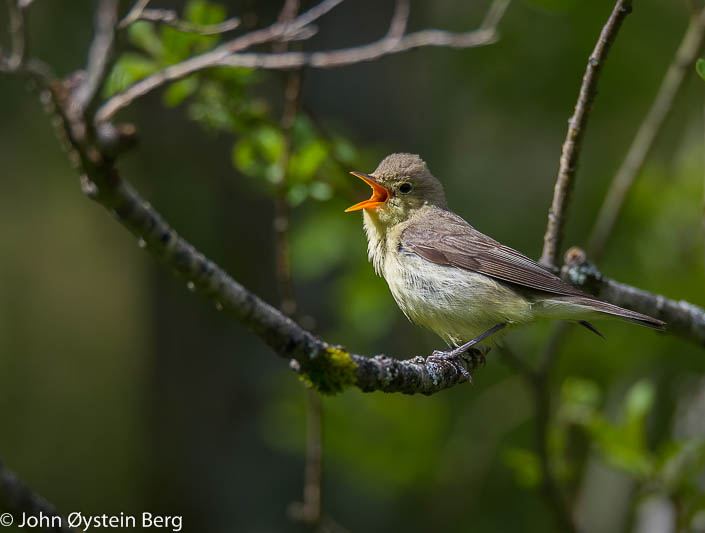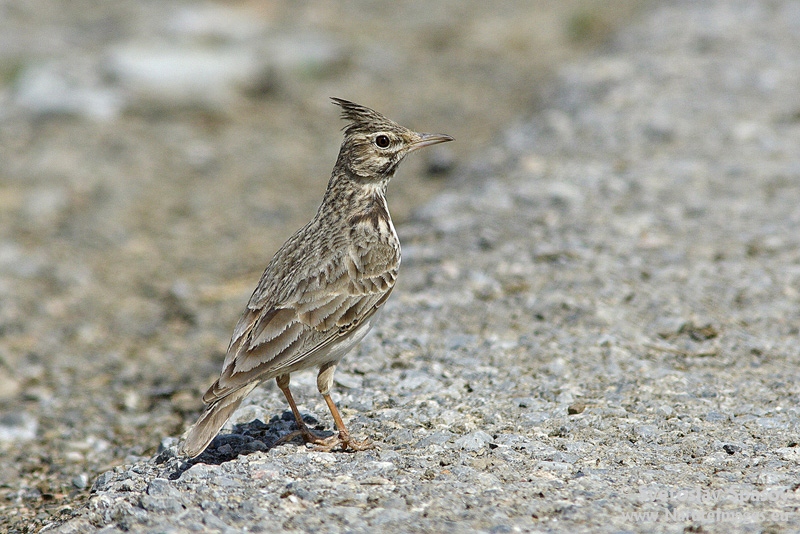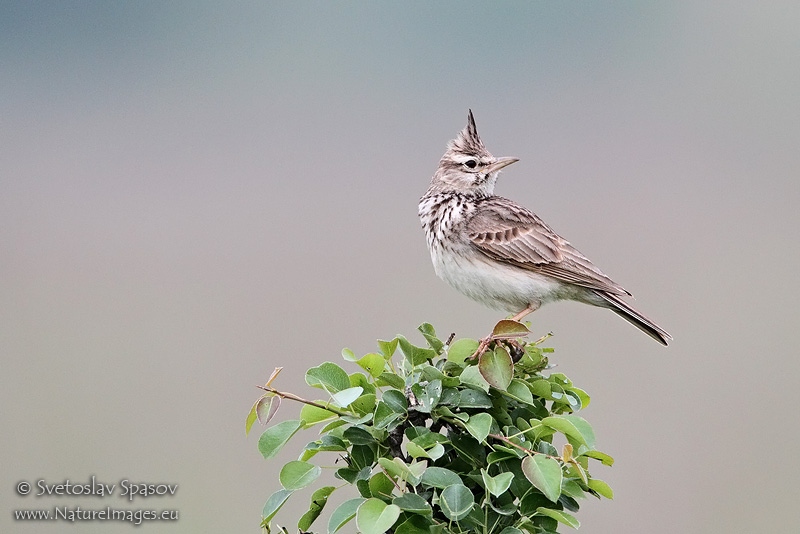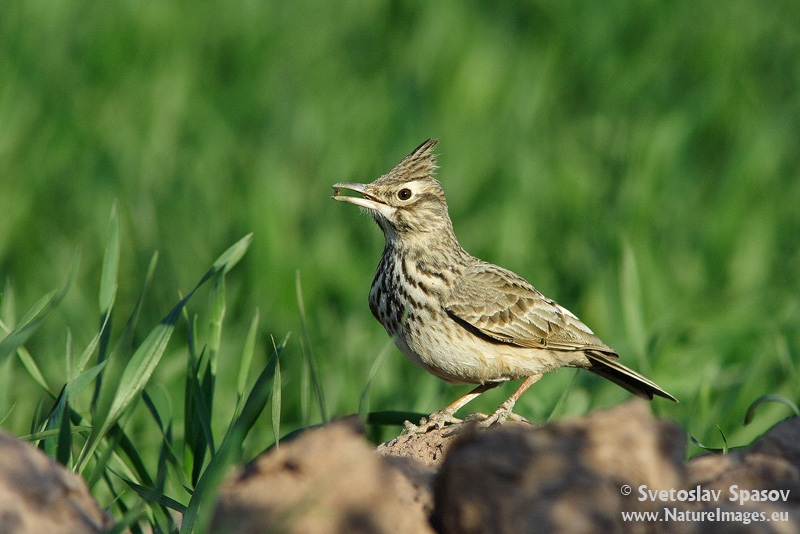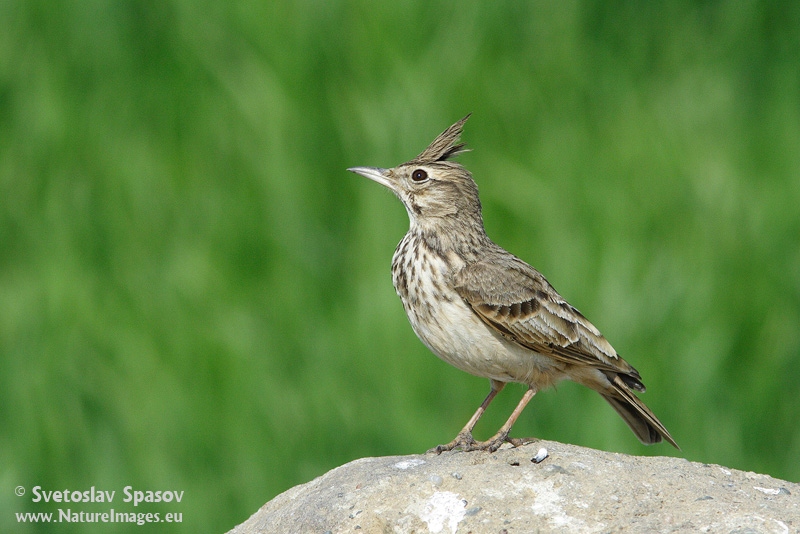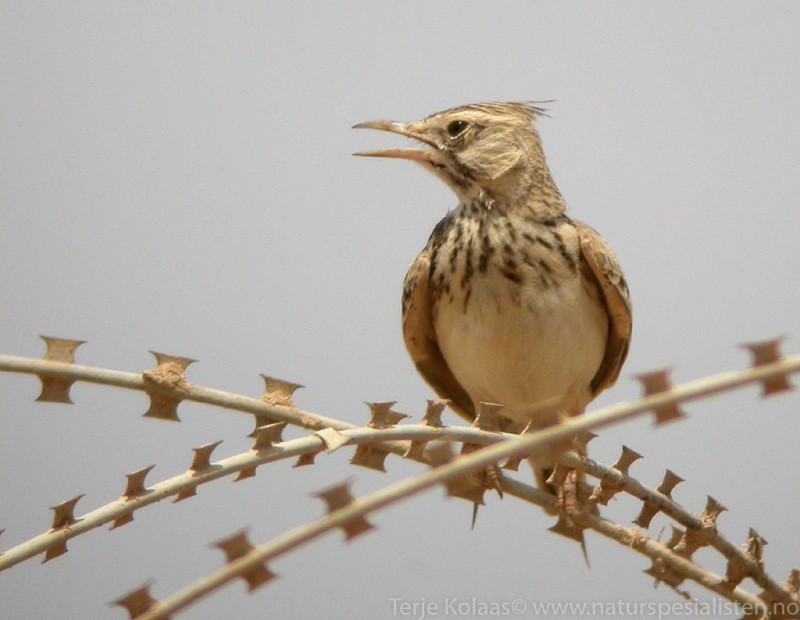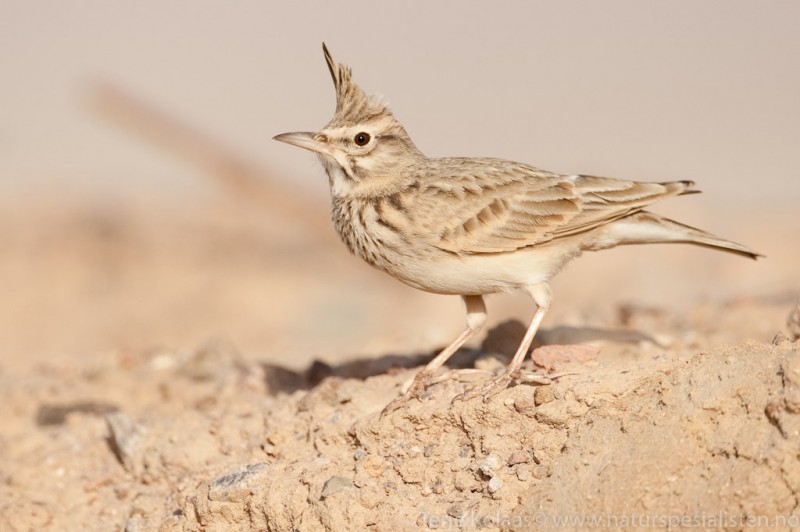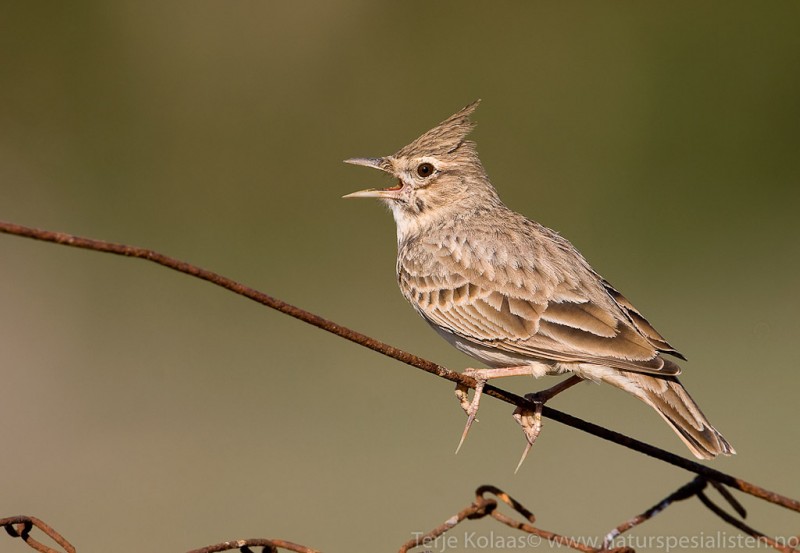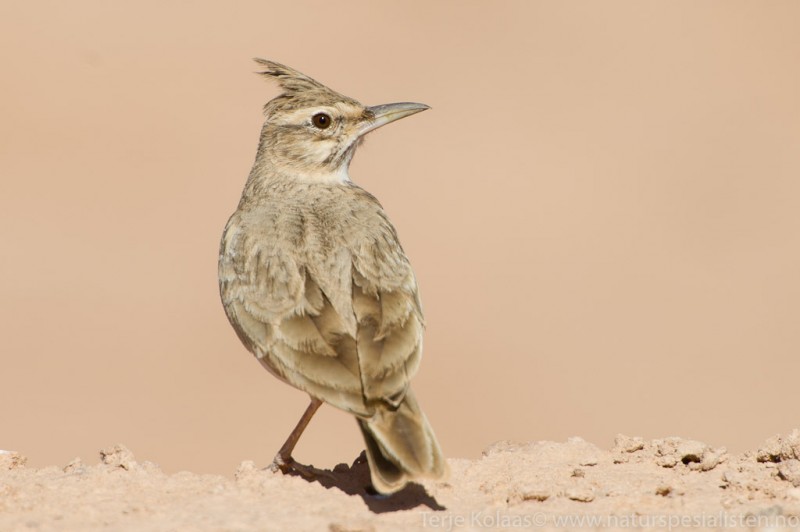Icterine Warbler (Hippolais icterina)
Crested Lark (Galerida cristata)
Green upperparts and yellow underparts. Sides of bill yellowish, legs slate grey. Short yellow supercilium which connects to yellow lore. Long wings and relatively short tail. The flat crown and long bill gives it a different head profile from Sylvia warblers. Often raises crown feathers. Very similar to Melodious Warbler, but differs from this in pale wing-panel and longer wings. Folded wings reaches tip of under tail coverts, and primary projection is as long as tertials. Juveniles paler than adults, with whitish supercilium. The pale wing-panel extends to fringes of greater coverts in addition to secondaries. Alert and agile bird. Usually hidden in foliage, also when singing.
Sound:Contact call distinct. A hard, trisyllabic "che-che-fink" , or "che-che-weet" with upward inflection. Song very virtuous and varied. Most similar to Marsh Warbler, but timbre and attack harder and more powerful. Tempo varied with many pauses, but includes longer, and more flowing sequences than Marsh Warbler. Song frequently interrupted by characteristic, nasal, high-pitched squeaks unlike Marsh Warbler. Master of mimicry. Imitations are often repeated several times before changing to melodious motifs or more "noisy" phrases.
Song:
Distribution:
Xeno-canto: map
Ecology:Birdlife ecology
Links:
Observation.org Latest observations
Image search Flickr NB! May give other species
CCGives a bulkier impression than Skylark, with longer bill, heavier head and body, and broader tail. In flight broad wings and short tail prominent. Lacks white edges on wings. Orange buff underwings. Crest on rear crown spiky and uneven. Outer tail feathers rufous, not white. Occasional song-flight. Slower wing-beats than skylark. Very similar to Thekla Lark, and identification can be very difficult in areas where both species occur. The much used streaked-breast character is not always relevant because of regional variations. Then habitat, behaviour and voice becomes important to identification, and a combination of structural and plumage character should be used. Bill appears curved (because of straight lower mandible), crest spikier than Thekla, belly deeper, back less heavily streaked , tail coverts less rusty-brown, upper breast usually with less defined streaking. Eye-stripe buffish, rather than white behind eye. Less prone to perch on top of scrubs or bushes than Thekla, and prefers lower altitude .
Sound:Song: a mix of long whistling, fluting sounds, trills and mimicry. Full song quite similar to Thekla Lark. Rudiments of song are often heard and includes more melancholic whistling than Thekla. Contact call/alarm-call: May be the best characteristic to separate it from Thekla Lark where both species occur. Crested Lark call with 2-4 syllables, of which one is extended and fairly flat. The phrase has a less "bouncing" feel to it than Thekla Lark, lacking the accented rapid rise and fall in pitch of the extended note of Thekla Lark.
Song:
Distribution:
Wikipedia: map (se also Xeno-canto below)
Ecology:Birdlife ecology
Links:
Observation.org Latest observations
Image search Flickr NB! May give other species
CC
 English
English Albanian
Albanian
 Armenian
Armenian
 Bulgarian
Bulgarian
 Catalan
Catalan
 Croatian
Croatian
 Czech
Czech
 Danish
Danish
 Dutch
Dutch
 Finnish
Finnish
 French
French
 Georgian
Georgian
 German
German
 Greek
Greek
 Hungarian
Hungarian
 Italian
Italian
 Latvian
Latvian
 Lithuanian
Lithuanian
 Macedonian
Macedonian
 Norwegian
Norwegian
 Polish
Polish
 Portuguese
Portuguese
 Romanian
Romanian
 Russian
Russian
 Sami : Lule sami
Sami : Lule sami
 Sami : North sami
Sami : North sami
 Sami : South sami
Sami : South sami
 Scientific names
Scientific names
 Serbian
Serbian
 Spanish
Spanish
 Swedish
Swedish
 Ukrainian
Ukrainian


